Crohn's Disease: Symptoms, Flares, and Management
1,000 people with Crohn's disease recently shared their experiences in our 2019 IBD In America survey. Respondents opened up about their diagnosis journey, symptoms, flares, treatment experiences, relationships with their doctor, management of the condition, coping strategies, and so much more.
Interested in hearing from our ulcerative colitis respondents? Click here to read more about what people with UC shared.
Crohn's severity and frequency
A majority of patients perceive their Crohn's to be moderate (54 percent) or severe (36 percent). Flares are very common, with 39 percent of patients reporting over 5 flares in the past year. For those who have had at least 1 flare in the past year, 37 percent have lasted between 1 week to 1 month. For some, flares carry on far beyond that. Regardless of if they are in a flare or not, many respondents experienced daily pain and many also experience symptoms for 15 or more days a month.
Symptoms and diagnosis of Crohn's
For 65 percent of those with Crohn's disease who took the survey, symptoms began before the age of 25, but only 43 percent were diagnosed before the age of 25. For respondents, the average time between symptom onset and diagnosis was 7 years. Additionally, 59 percent were misdiagnosed before receiving a diagnosis of Crohn’s disease.
The diagnosis process is described as frustrating, depressing, overwhelming, confusing, scary, and as a relief when symptoms are causing pain and interfering with daily life.
Treatment and management of the condition
Surgery is common in patients with Crohn's disease and 62 percent of respondents have had surgery to treat their Crohn's. Even with surgery, medication is needed and 61 percent of those who took the survey are currently using a biologic or JAK inhibitor. Patients use different management techniques for Crohn's in addition to prescription medications. This includes diet strategies to improve symptoms.
During a flare-up, symptoms are intensified and additional strategies are used to cope with flares.
The IBD in America 2019 survey was conducted online from February through June of 2019. Of the 1,705 people who completed the survey, 1,000 were diagnosed with Crohn's disease or Crohn's colitis, 490 were diagnosed with ulcerative colitis, and 215 were diagnosed with other types of IBD (indeterminate colitis, microscopic, lymphocytic, or collagenous colitis).

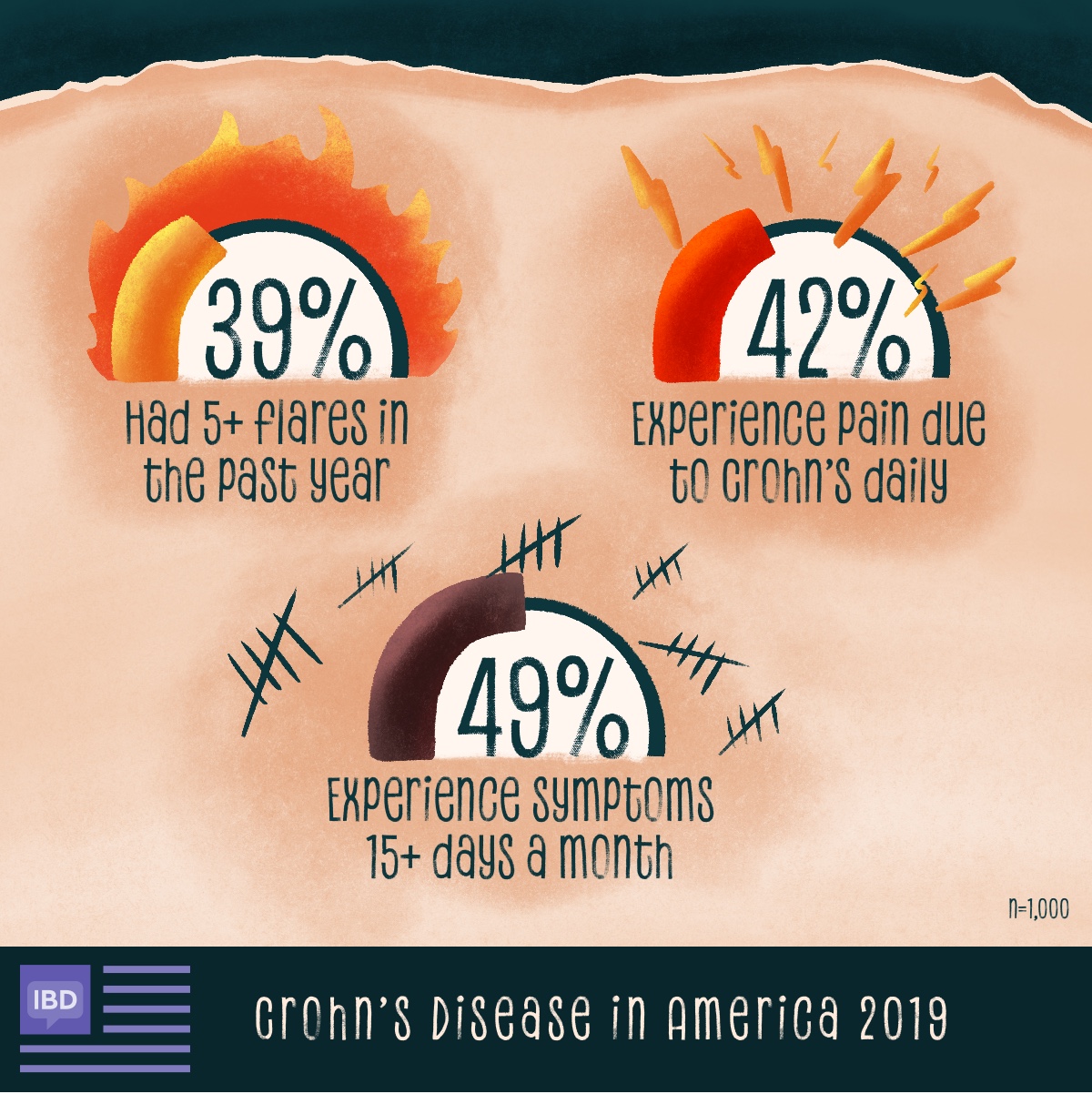
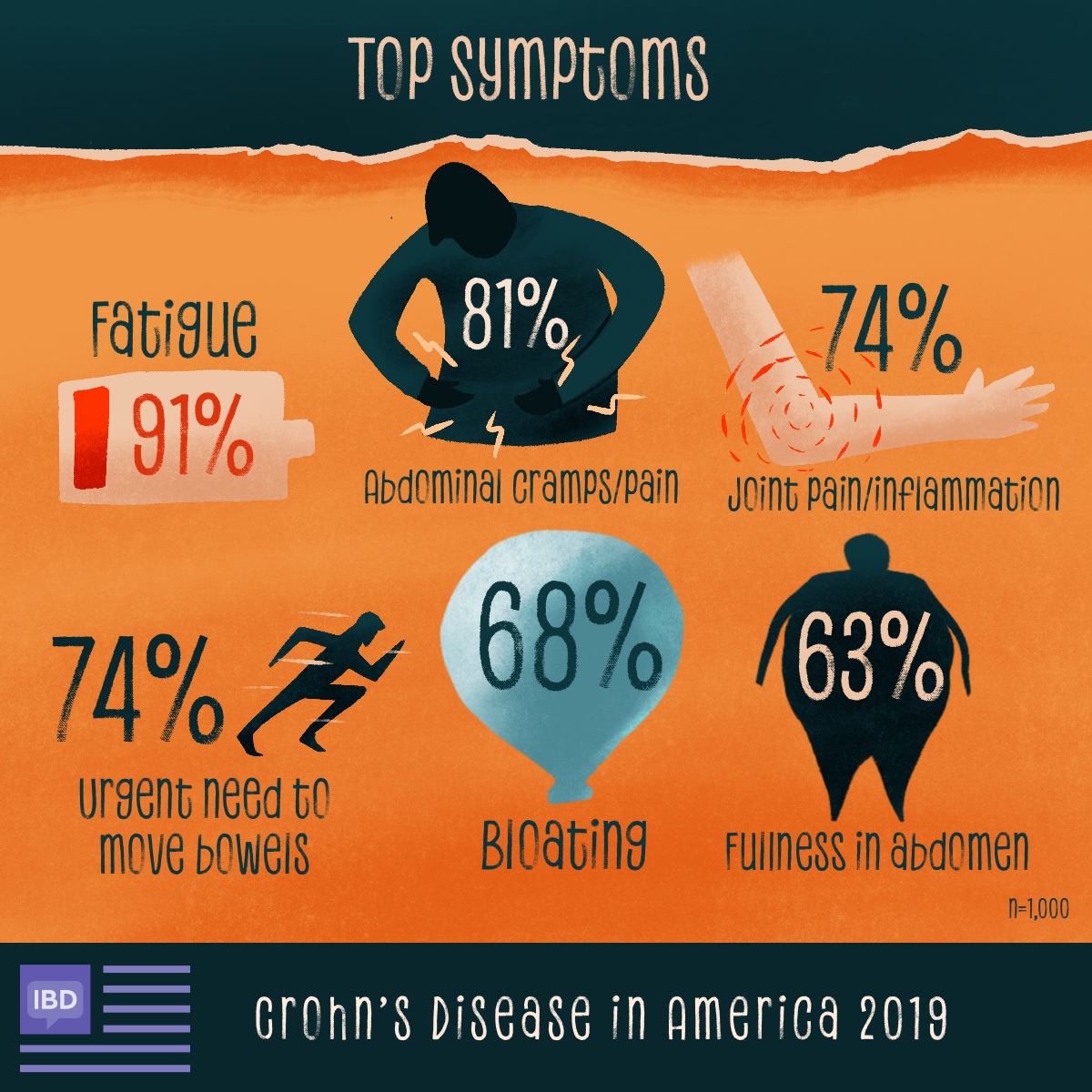
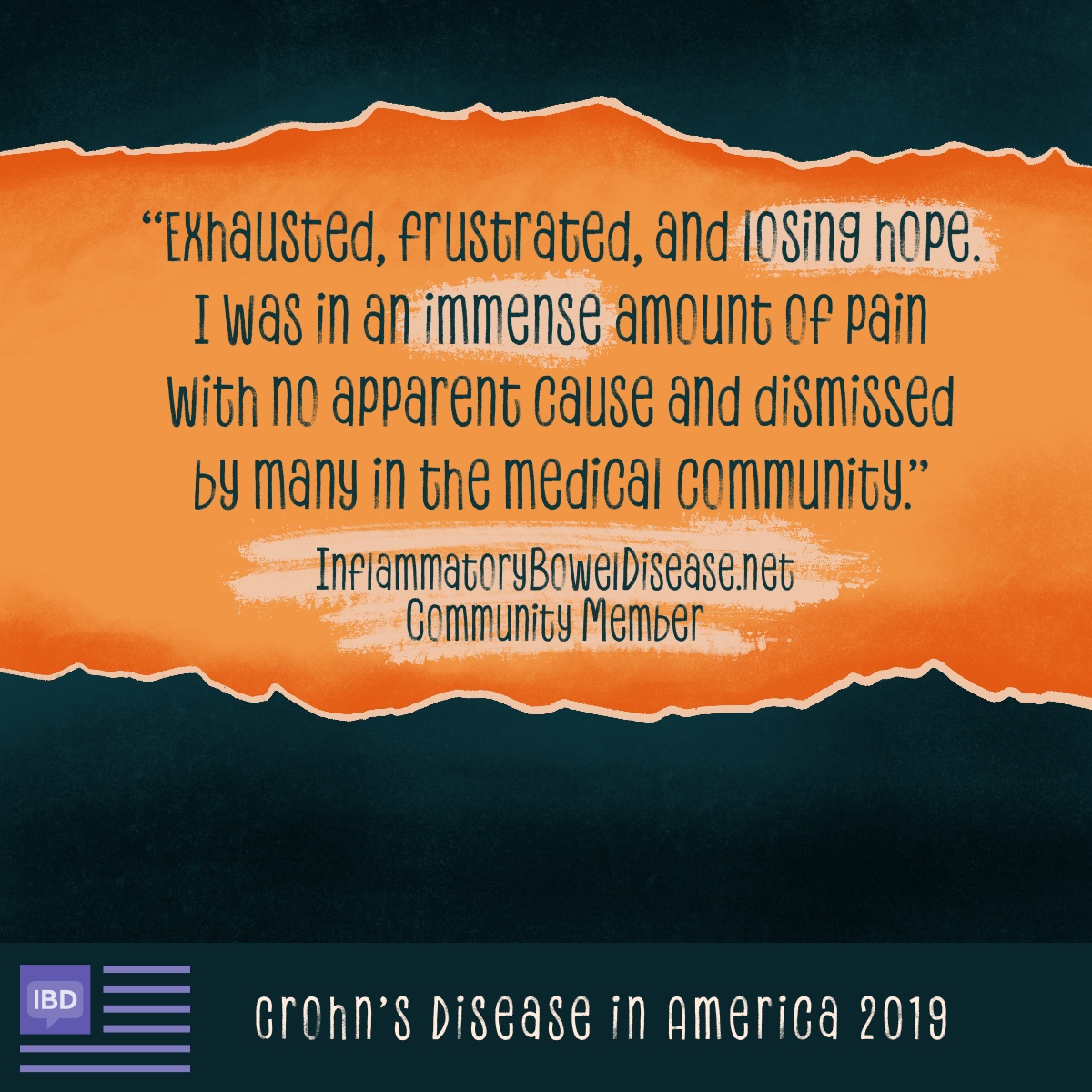
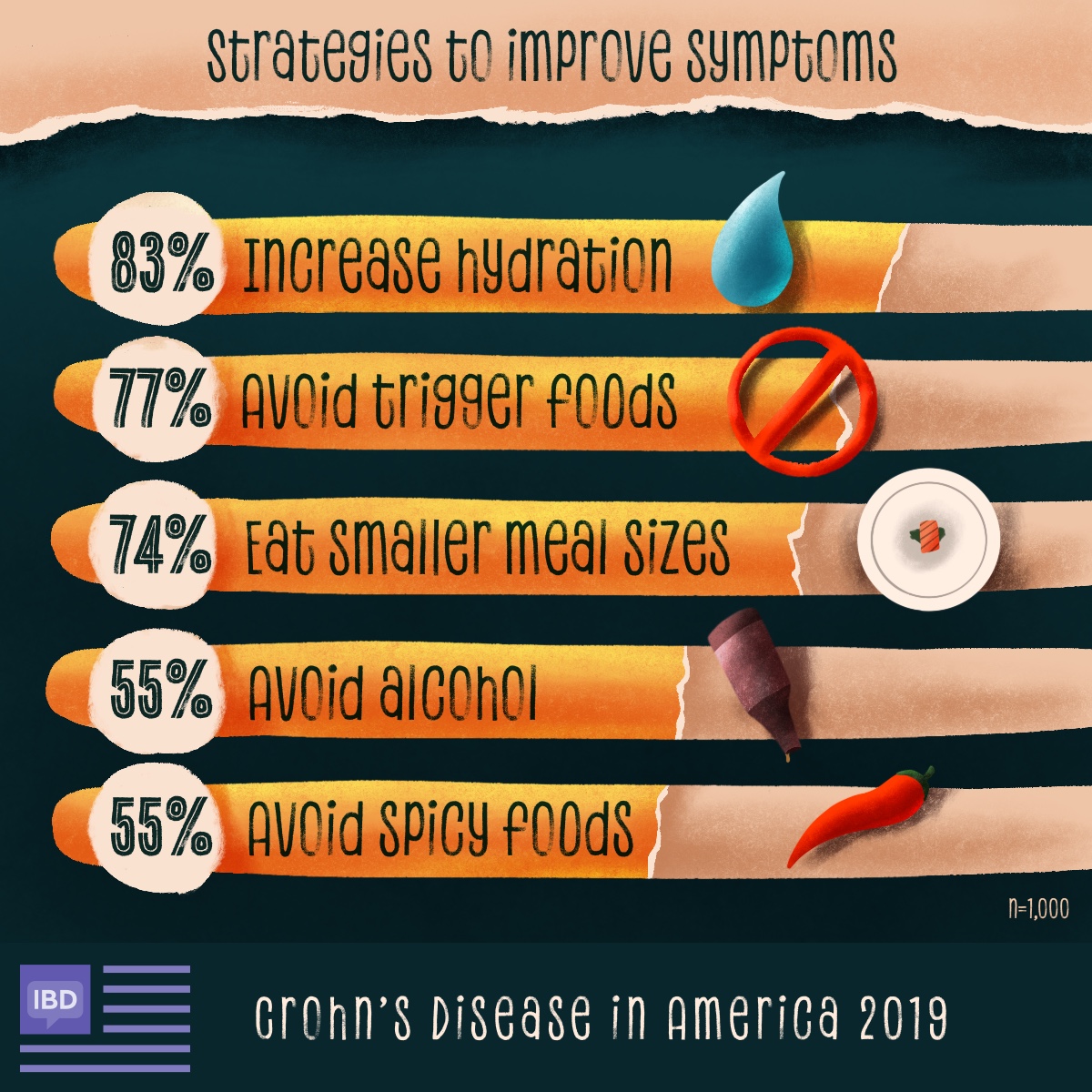
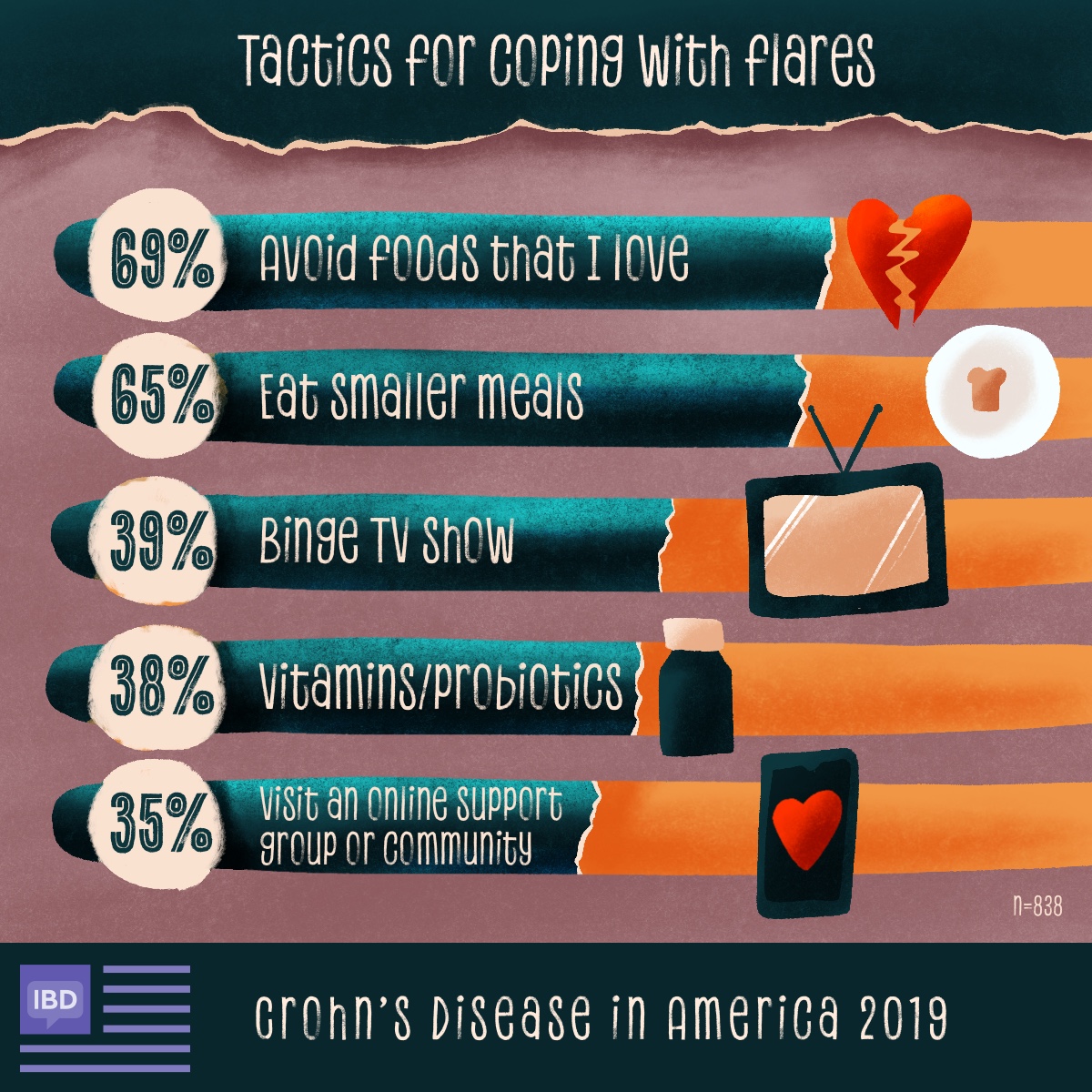
Join the conversation